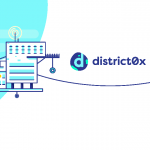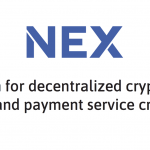PROJECT OVERVIEW.
Raiblocks is designed from the ground up for scalable instant transactions with zero transaction fees and no block rewards. The coins were initially distributed by a CAPTCHA controlled faucet with an annual halving rate.
BACKGROUND.
Existing cryptocurrency systems are largely known for their proof of work schemes, which are used to come to a fair distributed agreement about ledger changes. Bitcoin for instance creates an exact order for every transaction in the network and uses proof of work to come to an agreement on this order.
The transaction performance of these schemes compared to centralized systems is significantly worse relegating them to niche markets that can only capitalize on the benefit of decentralization while tolerating slow speed. These systems are costly as well as you need to spend a lot on electricity and materials when mining.
RaiBlocks system was designed to eliminate the need for distributed agreements in almost all circumstances. Each account maintains its own blockchain which is replicated to all peers in the network. This design helps the coin to operate indefinitely using the minimum amount of computing resources possible.
HOW IT WORKS.
Bitcoin mining does two things, it defines an order for transactions and it also makes sure no two transactions use the same unspent output. This means even benign transactions need arbitration by the network to determine their order.
RaiBlocks circumvents this huge class of arbitration by having each account specify an order for their own transactions, this means the network only needs to arbitrate if an account specifies more than one order, i.e. they hacked their node and are generating double spends.
When this is detected, representatives send out voting rounds and change their chosen block to match the winner that they’ve tallied from other voters. Since transactions are processed individually this means the rest of the network can continue on while this account is being arbitrated, again focusing on keeping good-actors moving along.
HOW ADVANCED IS IT?
The faucet claims page was turned off at 00:00 UTC on 17th October, 2017 ending the RaiBlocks distribution. At that point 7,000,000 xrb was sent from the genesis account to an account reserved for development funds and the remaining sent to a burn account removing it from circulation.
SIMILAR COINS.
IOTA.
Iota is a cryptocurrency that aims to establish itself as the fuel for efficient machine-to-machine (M2M) transactions. Instead of a regular blockchain, it uses the “Tangle”, which is based on DAG technology, enabling various features like zero-cost transactions, infinite scalability or offline transactions.
In a traditional blockchain, various transactions are bundled in each block before this bundle of transactions is verified by miners. In the Tangle, every single transaction forms a new block and is essentially verified by itself: In order to successfully conduct a transaction, you first have to verify two randomly chosen transactions in the network. This is done with help of a very simple version of proof-of-work, therefore one could argue that transactions aren’t zero-cost. Yet, the transaction costs are essentially not existent, as the needed PoW is so low that every single device is able to independently carry it out.
As every new transaction verifies two new transactions in the network, scalability rises with adoption. Therefore, the network could become indefinitely scalable, once more and more people send transactions.
Via the use of subtangles that reattach to the main Tangle at a later time (when a node comes back online), offline transactions can be carried out. This property offers high promises for applications in supply chain or other industries, as nodes don’t have to be online over a whole process.
How is it different from other projects in the space?
XRB unlike IOTA is open source and does not use PoW to validate conflictual TXs. XRB uses delegate voting based on holdings.



















